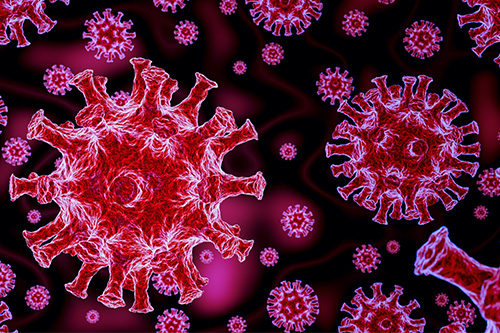ARUP Laboratories (Salt Lake City) began PCR testing for SARS-CoV-2 – the
virus that causes Covid-19 – March 12 and is currently able to run about 3,000 tests per day. Due to supply constraints, ARUP announced March 16 that it would focus SARS-CoV-2 PCR testing on clients within the state of Utah. Laboratory Economics recently spoke with Chief Medical Officer Julio Delgado, MD, about the pandemic and what ARUP is doing to ramp up testing.
Is ARUP’s Covid-19 test volume primarily for symptomatic hospital patients?
The majority of the samples we are doing are from symptomatic patients and healthcare workers. We also are supporting drive-through testing. (As of April 12, Utah had tested more than 45,000 residents and had 2,207 confirmed cases of Covid-19 and 18 deaths.)
Is your lab experiencing any shortage of test supplies, reagents or sample collection swabs?
Everything has been a challenge, every single aspect of this. Anything we need to do this test we have run into supply chain issues—collection devices, media for transport, reagents, instrumentation, everything. We can only promise five days ahead of time in terms of our capacity. It was really bad in the beginning, and it’s a little better now, but it’s still a challenge. We don’t have long term commitments from any vendors for supplies.
Are most coronavirus tests being ordered in conjunction with a respiratory virus panel?
We saw that initially, but that has decreased. It started with a one-to-one ratio, then it went to two-to-one, five-to-one—now it’s approximately twenty-to-one. The two tests are run on the same instrumentation. In Utah, clinicians are focused primarily on Covid-19 as we move out of the winter.
How many coronavirus tests can your lab perform per day?
We have capacity for about 3,000 a day. The challenge is that because we cannot secure a continuous supply chain, we can only take so many samples.
Are test orders exceeding capacity?
Since we closed the national offering, we have managed much better. We got completely flooded—in the beginning we had thousands of orders coming in. I believe we made the right decision for patient care to stop testing nationally. Of those initial national requests, we processed several
internally, and we sent some to commercial reference laboratories, but they were backlogged, too. We finally were able to report everything, but it took a long time.
Does ARUP currently perform an antibody test for Covid-19?
Not today, but we are working on it. We are hoping to have it ready in a week or two. This will be used for convalescent individuals and people who think they may have had the virus. This will help determine if someone has developed immunity and whether they can go back to work.
Has ARUP seen a decline in non-Covid-19 testing?
Yes, absolutely. With 80% of the country at home, people are not going to medical checkups, elective surgeries are not being done. Non-Covid testing is down at least 25% and decreasing.
Which instrument system does ARUP use to perform Covid-19 testing?
We have been using Hologic instruments [Panther Fusion]. We are getting ready to start using Roche cobas, so we will be using both. We hope to be able to run more tests, beyond 3,000, but that depends on the supply chain.
What precautions are you taking to protect lab employees from getting the virus?
We are doing everything dictated by the CDC. So far, we have been lucky—none of our virology lab workers have contracted the virus as far as I know. Those who are running the tests are using N95 masks, face shields, gowns. So far, we have had enough personal protective equipment, but we have not been able to replenish it at the same rate we were before. The lab staff are keeping at least six feet apart.
Could the warmer more humid weather in the spring/summer slow down the spread of Covid-19?
I don’t know. What’s your turnaround time for Covid-19 testing results?
We are promising within three to four days, but in most cases it’s two days. Hologic is a random-access instrument, which allows us to incorporate testing and move things ahead – that way we can prioritize testing for very sick patients.
Are you doing any rapid testing?
We have two BioFire instruments in the hospital system. They do one test at a time, and it takes about 45 minutes. We are using them judiciously in very critical and emergency situations. We also have several Abbott ID NOW instruments, and we have ordered tests, but areas with critical needs are being prioritized. We are on the list, and at some point we will get them.
Do you believe that surveillance testing of non-symptomatic people for Covid-19 is needed?
I believe so, but with the limitations of the supply chain, we aren’t able to do that. Right now, testing is all reactive. Surveillance testing would give us a better understanding of the epidemiology and the curves that each of the states will go through.

